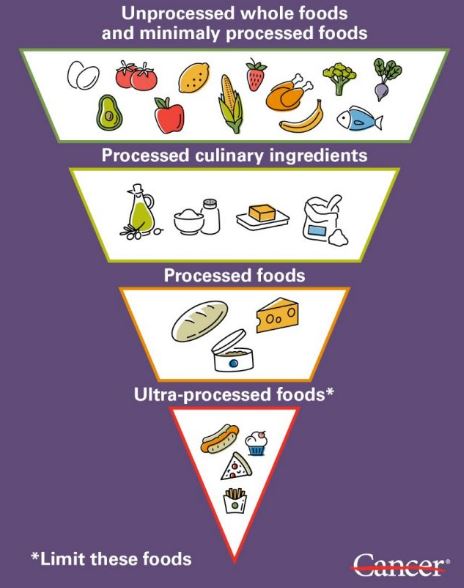Going with your Gut
For several years now, I’ve been more aware of my health and doing my best to preserve it. In the second half of 2020, I had a major health incident that “reset” my digestive system and life. For reasons still unknown, I had lymph node swelling and pain in many places throughout my body, and I became very sensitive to gluten and lectins. My energy plummeted and my active lifestyle generally slowed down to a crawl. I’ve since regained some energy but my diet is still very limited. A lot of HypoAir clients or their family members can relate to having these kinds of “limitations”. How do we go forward?
I don’t want to make this article about all the symptoms, although many of my daily decisions are made to avoid symptoms. I do want to talk about awareness and respect for the limitations of my body as I approach 50 years old. Even if you are a super-healthy 30-something, it’s time to stop thinking that you are invincible! The saying “the mind is willing but the body is weak” should be amended to “the mind is aware that the body is mortal”!
Yes, I used to be the one who rarely wore dust masks when sanding or spray-painting, pushed the envelope of squeezing working time into my week, and ate whatever I wanted to. Being thankful for all the knowledge I’ve acquired at HypoAir, it’s time to apply that knowledge to my own life. Notwithstanding viruses, weather conditions and quantity of sleep, there is validity to the theory that if I feel “off”, it very well may be the air I’m breathing or the food I ate. Here are some of the mental checks that can help to diagnose the source and correct the situation:
Your nose knows.
If you’re smelling it, it’s already in your bloodstream. For example, sometimes it’s easy to smell a gas leak, because the gas company adds a harmless odorant called “mercaptans” to help us know when it does leak. That’s great, but what do we do after that first whiff? We sniff around some more to try to find the source of the leak! By the time you’ve determined where it is the strongest, you have probably already inhaled a good amount of the more harmful bulk of the gas, which may contain up to 21 toxins (wbur.org). Similarly, the smells of car exhaust or gasoline mean that the harmful gasses have already entered our bloodstream by being absorbed through the lungs. The takeaway? Stop inhaling deeply and get out of the area as soon as possible.
Unless a product’s ingredients are listed and they are non-toxic, “good” smells can be deceiving. Opt for the unscented, because you can usually add essential oils to make a wonderful scent of your own!
“Stale” does mean too little ventilation. Crack the window (if there is good quality air outside) and see what a difference it makes in the scent of the room, as well as your thinking ability (check out our post on CO2).
“Musty” does mean mold. According to the EPA, the musty smell is microbial volatile organic compounds (mVOCs), which means that mold is already growing in the building. If you also check the humidity of the musty room and find that it’s high (above 65%), you can confirm your diagnosis with great accuracy even before finding the mold.
Listen to your body! “Sick” buildings are not apparent to everyone, but your body will tell you when the building is not healthy for you. For example, I worked once a week in a store where I had seen water coming through the ceiling after a hard rain. Certain parts of the store smelled musty, and I tried to avoid staying too long in them. Yet, fatigue was a routine part of my 4-hour shift. When I started developing severe headaches after only several hours in the store, I knew I had to tender my resignation. My health was not worth the small income that the job yielded.
We really are what we eat (and what we eat it in).
Is that dark stuff mold? Yes, mold can hide in “fresh” food that you’ve just opened. For example, nuts can be contaminated by mold and mycotoxins, which can get into the shell through the stem opening, or during storage after the nut is shelled. Moldy nuts are particularly dangerous because they harbor a fungus called Aspergillus flavus, which, "produces one of the most deadly toxins known to humankind. The toxin accumulates in the liver and can cause liver cancer.” (Dr. Patrick Hickey, mold expert, bbc.com) If the shells are intact and there’s no mold on the outside, you should be fine.
Soaking the nuts in salt water removes mold and pesticides and makes them easier to digest. Soak only the amount of nuts you will eat in a few days.
This article also recommends soaking nuts but then drying them to store them.
Here is a list of other foods that may be high in mold and what to do about them.
Not only does fast food contain ingredients that don’t play well with our bodies (like potassium bromate, propylene glycol, TBHQ, calcium sulfate, phosphate additives and BHT)(eatthis.com), even the wrappers have chemicals that do damage, like PFAS and phthalates. (cnn.com)
If it doesn’t look like the foods it came from, put it back! Would you eat food that’s already been digested? That sounds disgusting, but many foods on the supermarket aisles qualify to be in this new category: ultra-processed foods. Ultra-processed foods are packaged foods that have been made by food companies using many manufactured ingredients, rather than actual foods. Those ingredients are combined in some way to make something that is edible, but it in no way maintains the integrity or nutritional content of the original foods. (mdanderson.org) It’s best to limit these foods because they cause weight gain and have little nutritional value. Examples are soft drinks, chips, chocolate, candy, ice-cream, sweetened breakfast cereals, packaged soups, chicken nuggets, hotdogs, fries and more. (heartandstroke.ca) Here is a chart that shows how these are made:
Source: mdanderson.org
- Listen to your gut! When I feel fatigued and my gut is irritated, I take a look back at what I ate the day before. Sometimes foods do not outright make us sick, but they do not sit well and are not digested well. When that happens, very little nutrients are absorbed and what comes out is not “normal”. If this happens on a routine basis, start a food journal by writing down everything you eat and how you feel each day. If you find a correlation between certain foods and your symptoms, take the (sometimes difficult) step to eliminate it from your diet and find a healthier substitute! When you want to make a drastic improvement, Whole30 is a plan that is highly recommended by doctors and nutritionists to identify what is good for you to eat.
Does my lifestyle reflect the person I want to be?
- Having a physically comfortable job is not always healthy. I must admit, working from home has been good for my finances, and for the most part, my body. Isolation protects us from viruses and bacteria to a large degree, and home can be extremely comfortable for casual dress and “office” surroundings. But, working at a computer for hours on end without significant movement is not good. To avoid physical issues due to bad posture and poor circulation, It’s necessary to invest in a good chair and/or standing desk and set a timer to get up, stretch and move around once an hour.
- Adrenaline junkie + computer/phone job = poor health. I liken this to the stock jockeys, the dispatchers, and yes, the customer service industry. These are high-stress jobs, but without a physical outlet for the stress, the adrenaline produced continues to build up and cause inflammation and auto-immune problems. Why? Stress produces adrenaline in what is know as “fight or flight”. (see verywellmind.com) Both of these actions traditionally are physical–you fight the intruder or you run away from the intruder. But what if the stressful situation is the conversation with a customer on the other end of the phoneline, or a looming deadline and your computer is acting up? All that stress and adrenaline are internalized (because you aren’t allowed to fight with your words!) When this happens and you develop deteriorating physical symptoms, it’s time to talk with your employer about job modification, or look for a new job. I know; I was a dispatcher for 2 years and a customer service representative for about 8 years. Value your health and fight for it!
- Does my schedule reflect my priorities? Yes, it’s necessary to get that paycheck in order to pay the mortgage/rent/car note etc. But along with valuing your health, value the priorities that cause you to prosper as a person. Are you learning new skills and do you have the opportunity to use your natural abilities and passions in your job? It may sound like a luxury, but a lower-paying job may be worth more in the long run when it is a job you really love and enjoy! Consultants like marketingpartnershipprogram.com can help you discover these priorities and make them a reality, even increasing your reach and impact in your community and industry.
These are just some of the ways you can “go with your gut” in order to make wiser, healthier decisions that keep you moving onward and upward and not bogged down by ill health and ill emotions. Ideally it shouldn’t take decades to start on this path, but it’s never too late to start!
Photo by Vladislav Babienko on Unsplash


